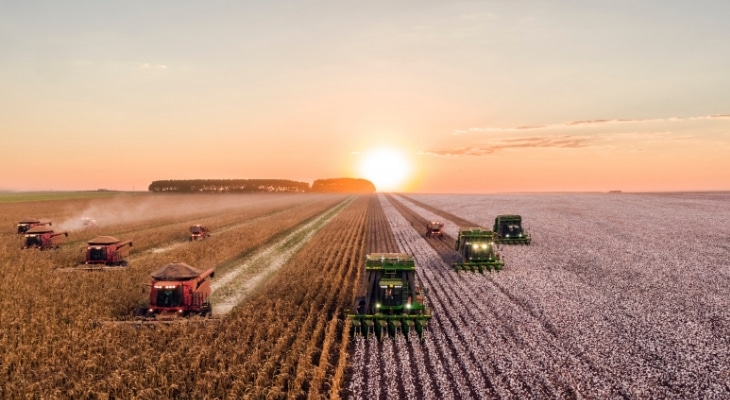Drought Resistance and Organic Farming
As much as consumers are embracing a healthier and more organic lifestyle, many still comment on the fact that going “organic” and living “sustainably” generally equates to a more “expensive” way of living.
However, an analysis of over 100 studies conducted by researchers at the University of California, Berkeley, may help with a solution to this issue and shows the benefits of organic farming. The findings were published in the journal the Proceedings of the Royal Society of London.
Discussion over the productivity gaps between organic and conventional farming have been plenty, with majority thinking the gap is bigger than it might be. The analysis found that organic farming is proven to be particularly competitive during droughts, such as the one currently affecting New South Wales and Queensland farming regions.
New South Wales is currently struggling with nearly 100% of the state in drought, an alarming 30% of that in an intense drought stage. Additionally, the state of Queensland has declared 58% of its land area in a drought-stricken state.
The University of California analysed one of the largest data sets ever compiled on organic and conventional methods, and across an index of approximately 50 crops. In simple terms, it was shown that organic farming created an exclusive mix of biodiversity within the soil and amongst its surrounding environment, such a unique mix that is tough to mimic using synthetic chemicals.
Although there was a productivity gap found, with organic farms displaying almost 20% less productivity than its conventional counterpart, researchers believe that this large gap can be reduced with the help of further investment into organic farming research and seed breeding. This number was still considerably lower than previous studies concluded.
The idea that organic farms can compete with conventional farms is not a new concept or discussion. A Farming Systems Trial at the Rodale Institute in Pennsylvania have been researching this exact topic since 1981. Through the process of using organic farming methods in some plots and pesticides and genetically modified organisms (GMOs) in the conventionally farmed plots, they found the organic plots performed better than the conventional ones, especially when times get tough.
The organic plots displayed better resilience in tougher circumstances, such as drought, as well as other weather events, like frost and flooding.
This resilience can be explained by the soil. Organic field soil absorbs more but needs less water due to the fact that the fungi and other organisms built up in organically farmed soil, fosters a mutually dependent relationship with the plants. This means the soil also stores water and replenishes supply better than conventionally farmed soil. Essentially, organically farmed soil has a lot more water for when those dry spells strike.
A concept such as this does not come without its sceptics, many having confidence in genetic modification techniques, with the creation of drought-resistant crops, and the efficiency of conventional farming.
Organics are a growing trend with many health and environmental benefits. 2019 will see more demand from consumers and changing farmer practices, making this trend more affordable in the future.
-
Get your FREE ticket
- REGISTER FOR FREE
